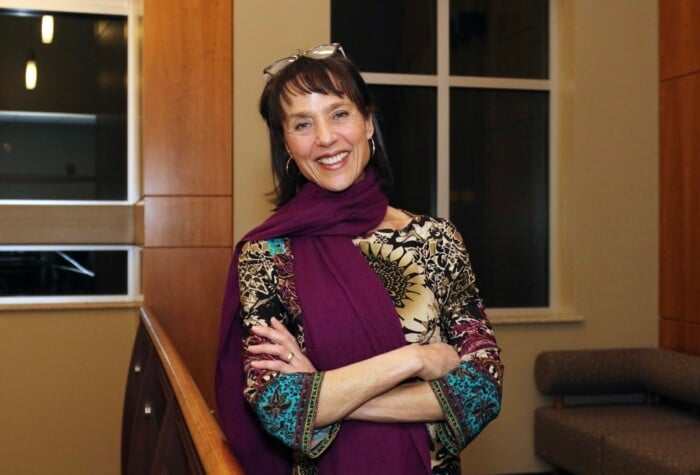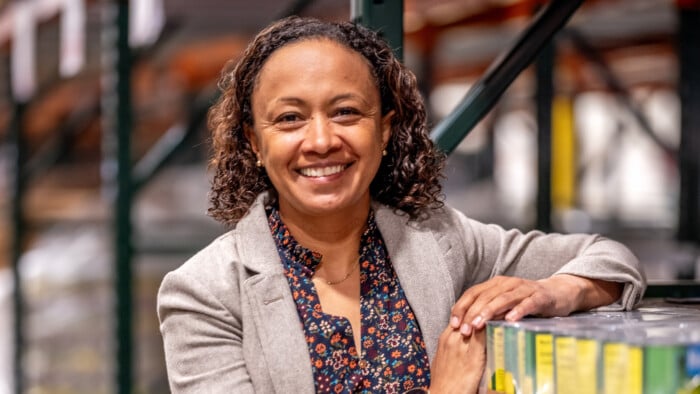Helping Parents Handle the College Transition
The kids are going off to college — how are parents coping?
This month, Judy Pinkham and her husband, Bill Charland, of Portsmouth, NH, will join thousands of other parents seeing their children off to college for the first time. Their son, 18-year-old Daniel Charland, will be living in a residence hall six hours away from home, at Syracuse University.
Daniel had been a quiet, shy student. He thrived when his middle school moved to remote learning during the pandemic. Later in high school, he emerged from his shell. Suddenly, the kid who had never been interested in going away to summer camp was interested in exploring universities as far away as Colorado, Pinkham says.
“And we’re like, ‘Oh, OK.’ He and I jumped on a plane, and we went out to Colorado. Thankfully, I have friends who are out there,” she says. “And I said to my friends, so if he picks this, you’re going to be like pseudo parents (to him). But eventually, his number one choice was Syracuse.”
Although New York is much closer to New Hampshire than Colorado, Pinkham expects drop-off day to be an emotional one for her family after they return home. Her youngest son, Ryan, will still live with them, but the family dynamic will change.
“Will I be crying as we pull away from Syracuse University? Yes. Do I believe that he is ready for this? Absolutely. Hands down, he is so ready for this,” Pinkham says.
When children leave for college, many parents experience a mix of worry, sadness and pride. While most universities offer programs to help first-year students cope with their newfound independence, parents often struggle with how to navigate their own feelings. They not only wrestle with the distance, but they also suddenly shift to a different role — and much have much less access to their children’s medical record, grades and schedules.
“It’s a big shift,” says Felix Pizzi, a licensed clinical mental health counselor and assistant vice president for student health and well-being at Southern New Hampshire University. “Medical information becomes private, and the same goes for academic and conduct records, unless the student gives permission.”
Parents and Their Young Adult Children: Closer Than Ever
Gone are the days when parents and students chatted on the phone weekly. Now, parents can check in on their children anytime, thanks to text messaging, FaceTime and social media. According to a 2024 Pew Research Center study, 73% of parents surveyed said they texted, and 54% said they talked on the phone or video chatted with their children at least a few times a week. Parents reported being “largely satisfied” with how often they communicated with their kids and with their overall level of involvement in their lives.
What are they talking about in these exchanges? Young adult children ask their parents for advice on topics like mental health (26%), friendships (21%) and romantic relationships (20%), the study said. But the desire for emotional support seems to go both ways. Almost 30% of parents in the survey reported relying on their children for some degree of emotional support.
This almost constant communication can thwart a student’s independence and keep them from developing critical problem-solving skills and emotional resilience. For example, listening to your child complain about their new roommate daily and becoming involved in their interpersonal drama might not be good for either of you.
“Part of maturing is being able to learn how to manage conflict and arguments. And also, for parents to rest assured that there are supports (at residential colleges) for students,” Pizzi says. “Ideally, the student will be asked to attempt to resolve the conflict with the individual themselves, and if not, then reach out to college staff to help solve it.”
Setting Communication Guidelines
At Southern New Hampshire University, staff recognize that families need support and take a proactive approach to help them navigate the logistical complexities of sending a student to college for the first time. For example, the university’s on-campus student orientation programming includes sessions for parents and guardians to help connect their students with any services or accessibility accommodations they need to successfully transition to independent college life.
While SNHU doesn’t yet have formal programming to support parents’ emotional transitions, Pizzi says it’s something they’re considering adding.
“We’re noticing this generation of students has a high reliance on parents in contrast to perhaps other generations,” he says. “I have colleagues that work at the high school level. And there are kids that can’t go a few hours without texting their parents. They’re in constant communication. College is a different experience where, especially if people are living away on campus, they may want something different.”
At move-in, SNHU establishes a “goodbye” time to prevent parents from lingering too long. To set expectations, Pizzi recommends families plan ahead how they’ll end the day. He suggests that parents communicate to their child what schedule will look like and what will happen after they leave to help the student emotionally prepare for what comes next.
At the same time, Pizzi recommends that parents and students set communication expectations in advance to avoid feelings of guilt or intrusion on either side. Talk about what you need as a parent, listen to the communication needs your student has, and then make a plan, he suggests. Then, you can follow it and reassess it if needed.
“Once you have a starting place, you can agree that we’re going to talk every Tuesday night and every Saturday morning, as an example. And then you can gauge. Is that feeling frequent enough?” he says. “And I think as a parent you’re able to follow what the student might need in the developmental place that they’re in.”
While it may seem tempting to monitor students from home, Pizzi urges parents to maintain healthy boundaries. Getting into a student’s personal accounts, such as email or social media, can become intrusive. The challenge of parenting is to tolerate the independence students need to have, he says.
“In high school, the parental role is like being in the driver’s seat. In college, you shift to being the co-pilot, giving advice and helping the student resolve problems themselves,” he says.
Ultimately, Pizzi says the best thing a parent can do is to model confidence for their first-year student, even if they feel unsure of themselves.
“Our task is to be confident in our children’s ability to conquer the world,” he says. “The more we believe that, the higher the chances are that they can.”
Pinkham says she and her husband have a close, open relationship with Daniel, but they won’t be tracking his whereabouts on campus or following his every move on social media. Right now, she intentionally has very limited access to his social media and plans to give her son the space he needs to acclimate to college life.
“We’ll be there for parents’ weekend. But we told him we’re paying for a really good school. We’re expecting you to do your work, and we’re expecting you to have great friends and surround yourself with great opportunities,” she says. “And you know, we’re the kind of the parents that are going to take it as it comes without too much structure around it.”












